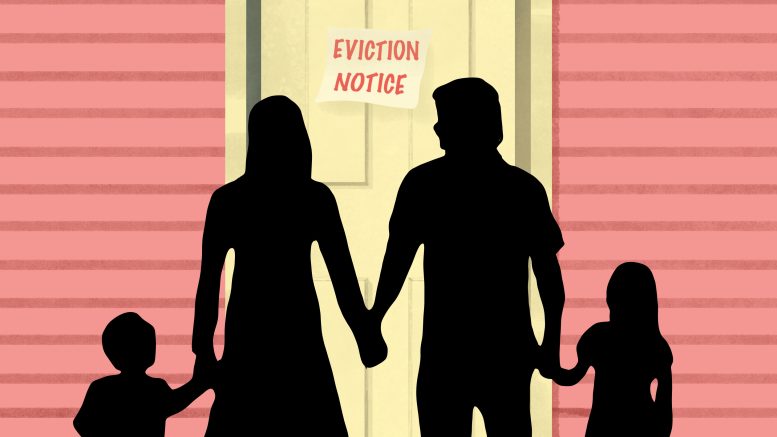Ongoing conflicts in occupied Palestine beg the question of whether it is a fair two-sided conflict when Palestine and the Palestinian people have always gotten the short end of the stick.
Early foreshadowing of the present-day political conflict can be found in the rise of modern political Zionism in the late 1800s, which was primarily fuelled by wide-spread antisemitism in Europe.
This led to an increase of Jewish immigration to Ottoman Palestine, which Arabs in the region saw as a European attempt at colonization, and violence began between the two groups. When increased immigration to British-controlled Palestine began, the land had a Muslim Arab majority population.
The fighting intensified so much that the British asked the newly formed United Nations (UN) to find a solution. In 1947, the UN proposed to divide the territory into two distinct states, one Jewish and one Palestinian Arab. Fighting continued, though, and neighbouring Arab countries went to war with the newly formed Israel. The Palestinian and Arab forces lost to Israeli forces, and the war caused the Nakba in 1948 — Arabic for “catastrophe” — where as many as 750,000 Palestinians were displaced.
The UN Relief and Works Agency for Palestine Refugees in the Near East estimates that today there are about 5.9 million Palestinians descended from refugees of the 1948 conflict who also qualify for refugee status.
According to the UN, Israel held more than 77 per cent of what was formerly British-controlled Palestine by the end of the 1948 war. The UN proposal in 1947 would have granted them 56 per cent of the territory.
After the 1948 conflict, the Gaza Strip was controlled by Egypt, while the West Bank and East Jerusalem were controlled by Jordan. In 1967, another war took place that lasted six days, which ended with Israel in control of the West Bank and Gaza Strip, two regions home to large populations of Palestinians, as well as East Jerusalem.
In 2022, a UN commission of inquiry issued a report that found Israel’s continued occupation of Palestinian territory to be illegal under international law. The commission considers occupied Palestinian territory to include East Jerusalem, the Syrian Golan, Gaza and the West Bank outside of East Jerusalem.
Additionally, groups like Amnesty International and Human Rights Watch have found that Palestinian residents of these areas have suffered many consequences as a result of occupation, including discrimination, restricted mobility and restricted access to water and other natural resources. The UN considers over 96 per cent of war-torn Gaza’s water to be contaminated and undrinkable.
The occupation has been further exacerbated by Israel’s facilitation of what the UN and much of the international community deem to be illegal settlements in the West Bank, as well as the forced eviction of Palestinians and demolition of Palestinian homes to construct Israeli infrastructure. This process has left many Palestinian families and communities displaced and destitute.
Just last year, the high courts of Israel approved the eviction of 1,000 Palestinians from a region of the West Bank, home to at least eight small Palestinian villages, to claim land for military use. These kinds of actions further act as barricades that prevent Palestinians from ever having an independent state.
As a result of the ongoing violence, several Palestinian political and military organizations were started, most notably Fatah, predominant in the West Bank, and Hamas, a radical nationalist and militant organization that oversees the Gaza Strip. However, there is no cohesive Palestinian front that can unify against the Israeli occupation because the two groups have fundamentally opposing political ideologies.
Despite all these glaring violations against international law and human rights, the Israeli government barely faces any pushback from other states for its unjust attempts at colonization, especially when compared to Russia today.
In fact, the U.S. gave the Israeli government US$3.8 billion in aid in 2020 and sold US$735 million dollars’ worth of weapons to the nation — which go toward further assisting the displacement of Palestinian people and the settler colonialism of Palestinian territory.
The international community has done a great disservice to the Palestinians by allowing the criminal actions of Israel to go unchallenged for this long. Western countries like the U.S. and Canada’s friendly ties with Israel silently enable their settler colonialist efforts.
The Israeli occupation of Palestinian territories has deprived Palestinians of the opportunity to have their own sovereign state and has left them vulnerable and without a home. Not criticizing Israel’s corrupt land-grab strategies and ongoing use of excessive force — which has resulted in thousands of innocent Palestinian civilian casualties — contributes to the ethnic cleansing of the Palestinians from their homeland.
It is crucial to emphasize that the Israel-Palestine conflict is a land issue. The Jewish community should not have to answer for the actions of the Israeli authorities. The Israeli government and those directly responsible for the uprooting of Palestinians should be the only ones held accountable.
I know what the just solution for this occupation could be, but I don’t know what a realistic solution would mean. I do know that I believe that Palestinians deserve the right to have a home on their land, and there is no way to accomplish that without the support of the world.


